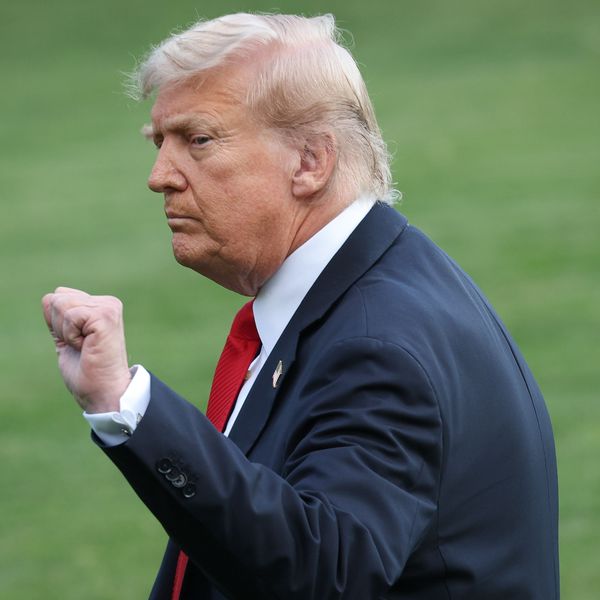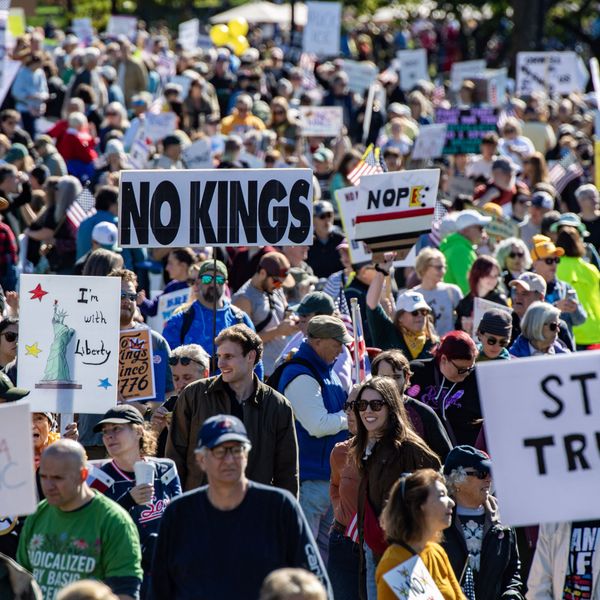The blunt assumption has dominated much of the political world's thinking for months: "There's simply no way Americans will elect an unqualified, racist television personality to be president of the United States. That's just not just who we are as a people."
And throughout most of the 2016 election season, there's been a steady stream of evidence to bolster the thesis. Hillary Clinton's lead over Donald Trump has never reached insurmountable heights, but her national advantage has nevertheless had the benefit of longevity.
But as summer gets ready to turn to fall, it's time to take a fresh look at old assumptions about the presidential race.
Yesterday afternoon, the latest national Quinnipiac poll showed Clinton leading Trump by five, 48% to 43%, which is half the advantage she enjoyed in the same poll in late August. Once third-party candidates are added to the mix, the Democrat's lead shrinks to just two points, 41% to 39%.
This morning, another major national poll pointed to an even closer contest.
With less than eight weeks before Election Day, Donald J. Trump and Hillary Clinton are locked in a tight contest, with both candidates still struggling to win the confidence of their respective bases, the latest New York Times/CBS News poll finds.
Mrs. Clinton, the Democratic nominee, has the support of 46 percent of likely voters nationwide, to 44 percent for Mr. Trump, the Republican, including those who said they were leaning toward a candidate.... In a four-way race, Mr. Trump and Mrs. Clinton are tied at 42 percent each.
Note, both of these polls were conducted late last week through early this week, so respondents were likely aware of intense media coverage of Clinton's pneumonia and "deplorables" comment in reference to Trump's extremist supporters.
And if these survey results weren't quite enough to cause Democratic handwringing, new state-based polling from CNN almost certainly did the trick.
In fact, CNN found Trump leading Clinton in the nation's two largest swing states - Ohio and Florida - by margins of five and three points, respectively, in polls that included the third-party candidates.
This data followed a new poll from Monmouth University, which showed Trump also inching past Clinton in Nevada, where the Republican leads 44% to 42% in a four-way contest.
As things stand, Clinton is still widely seen as the favorite and the odds remain in her favor. But there's also no denying the fact that the race has tightened and the possibility of Donald Trump getting elected president is quite real.
Don't be too surprised if the polls themselves have some effect on the outcome: it seems quite plausible to me that there are voters who might have been tempted to sit this one out, assuming that Trump could not win, who'll be more inclined to show up in light of polling showing a nearly tied race.
On a related note, the more uncertain the outcome, the greater the possibility that engaged Americans will give a darn. Matt Yglesias noted on Twitter last night, "If you're freaking out about the polls, [it's] also worth asking yourself how much time you plan to spend volunteering over the next seven weeks."
It's a fair point. If you want Trump to win, there's fresh evidence that your preferred candidate is within striking distance of actually getting elected. If you want Clinton to win, you can no longer assume this race is in the bag - you and your allies are going to have to go earn it.
Election Day is 54 days away. The first presidential debate is 11 days away.

